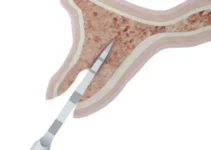Determining the prices of dentures can be more intricate than most patients anticipate. This variability is due to multiple factors including the type of dentures (full or partial), the materials used, and any additional dental procedures that may be required prior to fitting, such as extractions or jaw adjustments. Furthermore, the costs can also be influenced by the dental practice’s location and the expertise of the dentist. It’s advisable to consult with a dental professional to get a detailed breakdown of the costs involved and explore various financing options that might be available to ensure that the solution fits your budget and dental needs.
Factors Influencing Denture Prices
When considering the cost of dentures, several factors come into play. Understanding these factors can help patients make informed decisions about their dental health. Below, we will discuss two of the most significant factors that influence the price of dentures: material quality and the type of denture.
While cost is often a primary concern, it’s crucial to weigh it against other important aspects such as durability, comfort, and aesthetics. Investing in higher quality dentures can pay off in the long run with fewer adjustments and replacements. Making an informed choice requires a good understanding of the following elements:
Material Quality
One of the most significant factors influencing denture prices is the quality of materials used in their fabrication. Dentures can be made from various materials, each with its own set of advantages and price points. Here’s a brief rundown:
- Acrylic Resin: The most commonly used material for dentures. It is affordable and offers a reasonable balance between comfort and durability.
- Porcelain: Porcelain dentures are known for their natural appearance and durability. However, they tend to be more expensive due to their superior aesthetics and longer lifespan.
- Cobalt-Chromium Alloys: Often used for the framework of partial dentures, these metals provide strong, lightweight structures but come at a higher cost compared to acrylic.
The choice of material will impact not only the initial cost but also the long-term maintenance and replacement costs. Higher quality materials generally mean longer-lasting dentures that may require fewer adjustments over time.
Type of Denture
Another critical factor affecting the price of dentures is the type of denture required. There are several types of dentures, each designed for specific situations and patient needs. These variations can result in different price points:
- Full Dentures: Designed to replace all of the teeth in either the upper or lower jaw, full dentures are generally more expensive due to the comprehensive nature of the restoration.
- Partial Dentures: Used when some natural teeth remain. They can be less expensive than full dentures but require precise fitting to blend seamlessly with the existing teeth.
- Implant-Supported Dentures: These dentures are anchored to dental implants, offering superior stability and comfort. They are typically the most expensive type due to the surgical procedure involved and the cost of implants.
The complexity and customization required for each type of denture significantly influence the overall cost. For instance, implant-supported dentures may require multiple dental visits and surgical procedures, thus increasing the price. By understanding these factors, patients can better navigate their options and make more informed decisions about their dental care. For more in-depth articles on dental health and restoration, be sure to explore our other educational pieces.
Average Denture Price Range
The cost of dentures can vary significantly depending on several factors such as the type of denture, the materials used, and the complexity of the case. On average, basic dentures might cost anywhere from $300 to $500 per plate. These are typically made from lower-cost materials and may not offer the most natural appearance or comfort. Mid-range dentures, which generally offer improved aesthetics and comfort, can range from $500 to $1,500 per plate.
For those seeking the best in quality and aesthetics, premium dentures represent the higher end of the cost spectrum. These can range from $2,000 to $4,000 per plate and often feature advanced materials and custom fittings to ensure the best possible comfort and appearance. Factors that can influence the overall cost include the geographical location of the dental practice, the dentist’s experience, and any additional treatments such as extractions or implant placements that may be required prior to fitting the dentures.
It is also essential to consider the long-term costs associated with dentures. While lower-cost options might seem attractive initially, they may require more frequent adjustments and replacements, leading to higher long-term expenses. Investing in higher-quality dentures can potentially save money in the long run by offering greater durability and fewer adjustments. When deciding on the right option, it is crucial to discuss all available choices with a qualified dental professional, considering both immediate costs and long-term benefits.
Additional Costs to Consider
When planning for dental implant procedures and restorative work, it’s crucial to recognize that the initial quotation may not encompass all potential costs. Understanding additional costs will ensure patients are prepared and can budget accordingly, avoiding any financial surprises. One of the primary additional costs associated with implantology is related to pre-surgical assessments and imaging. Procedures such as CT scans or panoramic X-rays are often required to accurately map the bone structure and identify any potential complications, which can add to the overall cost of treatment.
Another significant cost to consider is the need for bone grafting or sinus lifts. These procedures are sometimes necessary when there is insufficient bone density or volume to support the implant. According to recent studies, 15.7% of dental restorations involve hybrid prostheses, with a notable portion requiring additional surgical interventions to achieve optimal results. Bone grafting can involve using autografts, allografts, or synthetic materials, each varying in price and complexity. Additionally, the skill and expertise required for such procedures might also increase the surgical fees. Furthermore, patients should be aware of potential maintenance costs and follow-up visits post-implantation. Regular check-ups are essential to ensure the longevity and health of the dental implants. This maintenance may include professional cleanings, adjustments to prosthetic components, or even potential replacements of parts. For example, the data indicates that 52.2% of prostheses are made for the jaw, with a significant percentage being bridges of multiple pieces, which might require ongoing attention and care. The materials used, such as chromium-cobalt in 88.7% of cases, can affect the long-term costs and maintenance needs as well.
By understanding these additional costs, patients can make informed decisions and plan appropriately for their dental health journey. It’s always advisable to discuss these potential expenses with your dental professional to avoid unexpected financial burdens. Exploring more on these related aspects in subsequent articles will provide a deeper understanding and further insights into the nuances of dental implantology and restorative work.
FAQs on Denture Prices and Materials Used
Understanding the costs and materials involved in denture fabrication can help you make an informed decision. Below are some commonly asked questions about denture prices and the materials used in their production.
What are the typical costs associated with different types of dentures?
The cost of dentures can vary significantly depending on the type and materials used. For example, complete conventional dentures might cost from $600 to $1,500 per arch. However, hybrid prostheses, which are a mix of removable and fixed components, can be more expensive, typically ranging between $1,500 and $5,000 depending on complexity and materials such as chromium-cobalt used in their framework. These prices may vary based on geographical location and the dentist’s expertise.
Why does the material used in dentures affect the price?
Materials play a crucial role in the cost, aesthetics, and durability of dentures. Chromium-cobalt, used in 88.7% of prostheses, is favored for its strength and resistance to wear, making it ideal for long-span bridges and heavy-duty use. These high-quality materials typically come at a higher cost but offer better performance and longevity compared to cheaper alternatives. Additionally, the precision needed in manufacturing these materials can add to the overall cost of the denture.

My name is Salman Kapa, a 73-year-old expert in bone regeneration and dental implantology. With decades of experience in the field, I am dedicated to advancing our understanding of oral health and hygiene. Through my research and writing, I aim to contribute to the development of innovative solutions in dental care.




